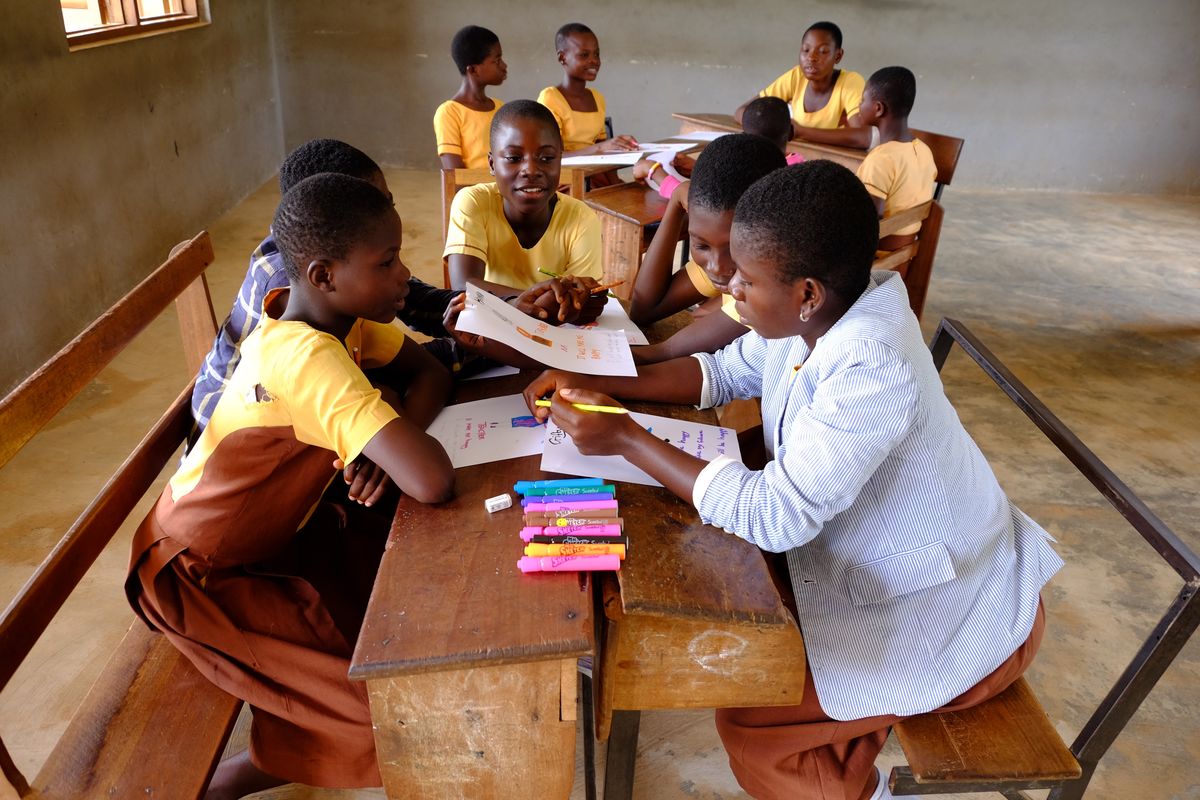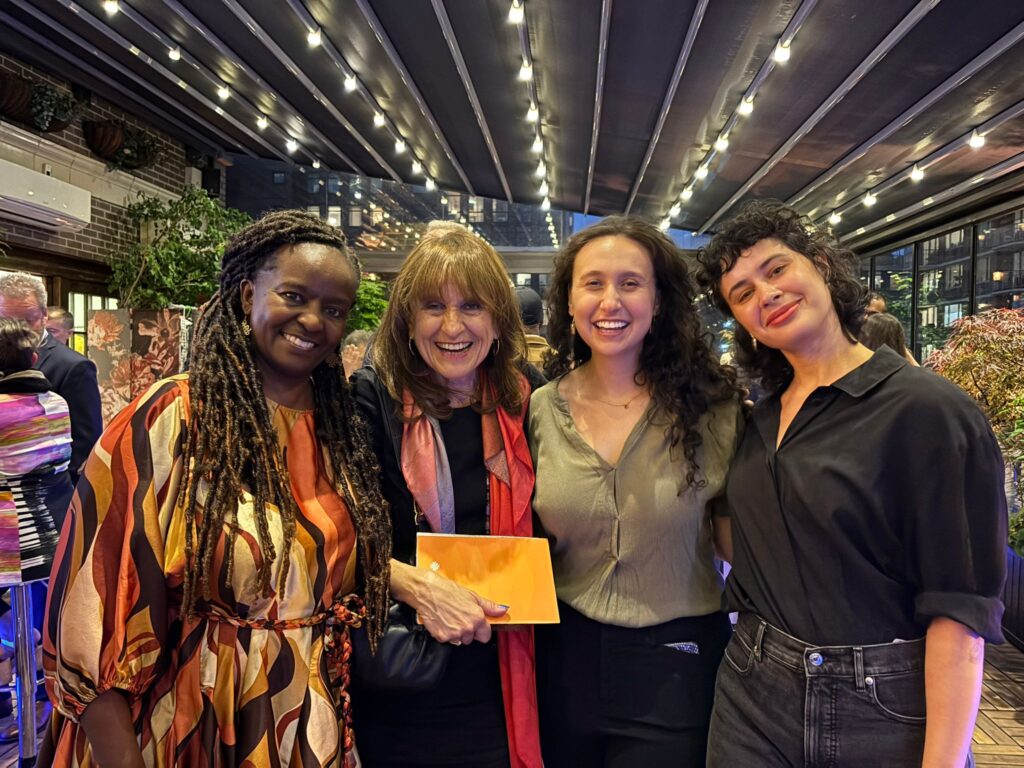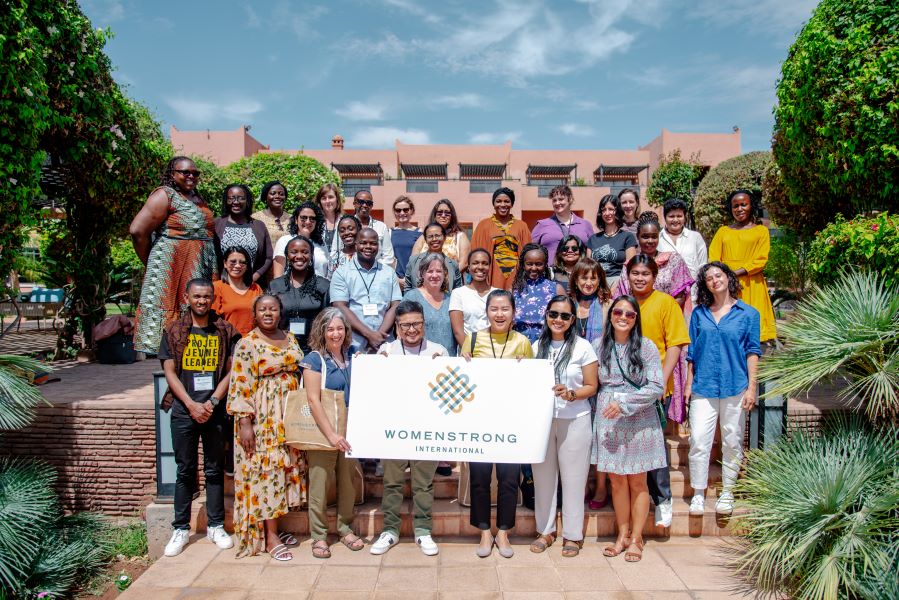WomenStrong International Executive Director Dr. Susan M. Blaustein Offers Insights from Ghana Girls’ Clubs on Meeting the Essential Needs of Teen Girls

WomenStrong International, a consortium of non-profit organizations in five nations supporting women-driven solutions to extreme urban poverty, announced today that Founder and Executive Director Dr. Susan M. Blaustein would speak at a workshop co-hosted with the Population Council on creating assets to protect vulnerable, impoverished adolescent girls.
Dr. Blaustein will share insights garnered from a new program in Kumasi, Ghana, designed to provide highly mobile, vulnerable teen-aged girls with resources and support to prevent or cope with the repercussions of rape and abuse, profound dislocation and trauma.
WomenStrong and its Consortium member in Ghana, Women’s Health to Wealth, work in Kumasi, Ghana’s second largest city and home to West Africa’s largest market. The city of 2 million acts as a magnet, drawing impoverished adolescent girls from Ghana’s far north who come to work porters in the marketplace. With no place to live, they sleep on the streets, facing the possibility of being violated by multiple men in the course of a single night. Whenever possible, they choose the lesser of two evils and sell their bodies to one man for a place to sleep, usually in his concrete courtyard.
Adolescent girls in school fare only slightly better. Coming in from surrounding villages to study, they may live with extended family or with someone to whom they’ve been contracted to labor in exchange for a place to sleep. Or, they wind up with an older “gentleman” to whom they’ve traded themselves for a place to sleep and payment of their school fees. Schoolgirls may also experience sexual abuse from teachers and, like their sisters from the north, have their lives changed forever from the trauma that impacts their health and self-esteem.
“We believe in the power of groups to create change, and in Kumasi and other WomenStrong sites, our Girls’ Clubs serve as a means of providing some protection to impoverished adolescent girls, both in school and out,” Dr. Blaustein said. “We’re very proud of the success we’ve had so far through our Consortium member in Ghana, Women’s Health to Wealth, and the approach we’ve developed is working.”
In just over a year, the WomenStrong/Women’s Health to Wealth program has reached 1,000 girls in 36 schools in seven local districts. The Girls’ Clubs strengthen girls’ literacy, financial literacy and advocacy skills and improve their access to sexual and reproductive health care and knowledge.
Girls hear from mentors, lean on each other, gain confidence and are supported when confronting and coping with sexual abuse. They have fun.
When an out-of-school girl is identified as needing help, WomenStrong/Women’s Health to Wealth convenes an informal community council that might include a teacher, Girls’ Club facilitator, local Ashanti chief, pastor or imam, other respected community leaders, the girl herself, her parents and peer mentors. In small groups of their peers, each girl is encouraged to express her goals and dreams, after which her council can design a tailored program to help her achieve them. The program may include an accelerated, individualized curriculum to bring a child up to speed, perhaps including a math tutor or a safe place for her baby to play while the girl is in class. The approach is high touch, but scalable.
Safety from predators and violence is one of the 6 Essential Needs that must be met to enable women and girls to lift themselves out of extreme urban poverty. Safety, health, education, economic empowerment, shelter and a functioning urban environment are not just needs: they’re human rights, and WomenStrong provides resources that enable women and girls to realize and enjoy those rights.
WomenStrong Consortium member, Women’s Health to Wealth, is led by Kumasi women who are both trusted and deeply attuned to the complex circumstances faced by today’s adolescent girls. Their challenges, as well as the at-risk girls themselves, are identified by tapping into a broad network of teachers, administrators, market women, mothers and their peers – and then by thoughtful, attentive listening, which drives the individualized programs designed to meet each girl’s needs. Insights gained from the Ghana program are now being adapted in other WomenStrong sites.
“We are creating safer paths for vulnerable, young girls so that their future isn’t derailed before it even begins,” Dr. Blaustein said. “Our work seeks to build strong, young women, because the path to ending poverty lies in making women strong.”
ABOUT WOMEN’S HEALTH TO WEALTH
Women’s Health to Wealth (WHW) began as a tiny women’s clinic in the heart of a bustling market in downtown Kumasi and now serves hundreds of women and girls in and around Ghana’s second largest city. WHW sees health as a prerequisite to sustainable wealth creation and leverages the delivery of health services to engage women and girls in a broad array of programs that serve their needs as they strive to overcome extreme urban poverty. To read more about the programs and WHW, visit http://whwghana.org/
ABOUT WOMENSTRONG INTERNATIONAL
WomenStrong International is a consortium of non-profit organizations in five nations supporting women-driven solutions to extreme urban poverty. Through our Consortium members in Ghana, Kenya, Haiti, India, and Washington, D.C., we help thousands of women and girls meet their 6 Essential Needs for health, shelter, safety, education, economic empowerment and a functioning urban environment. WomenStrong believes the path out of poverty and toward a more just and prosperous world can be found by making women strong. For more information, visit www.womenstrong.org .
Contact: Sydney Rubin, Deputy Director, WomenStrong International, [email protected]




